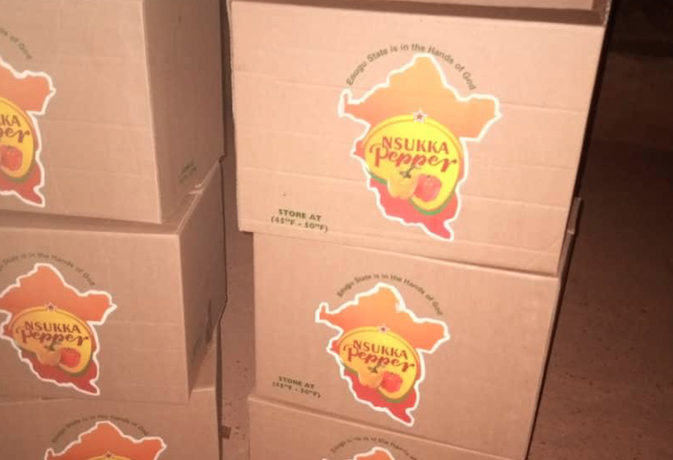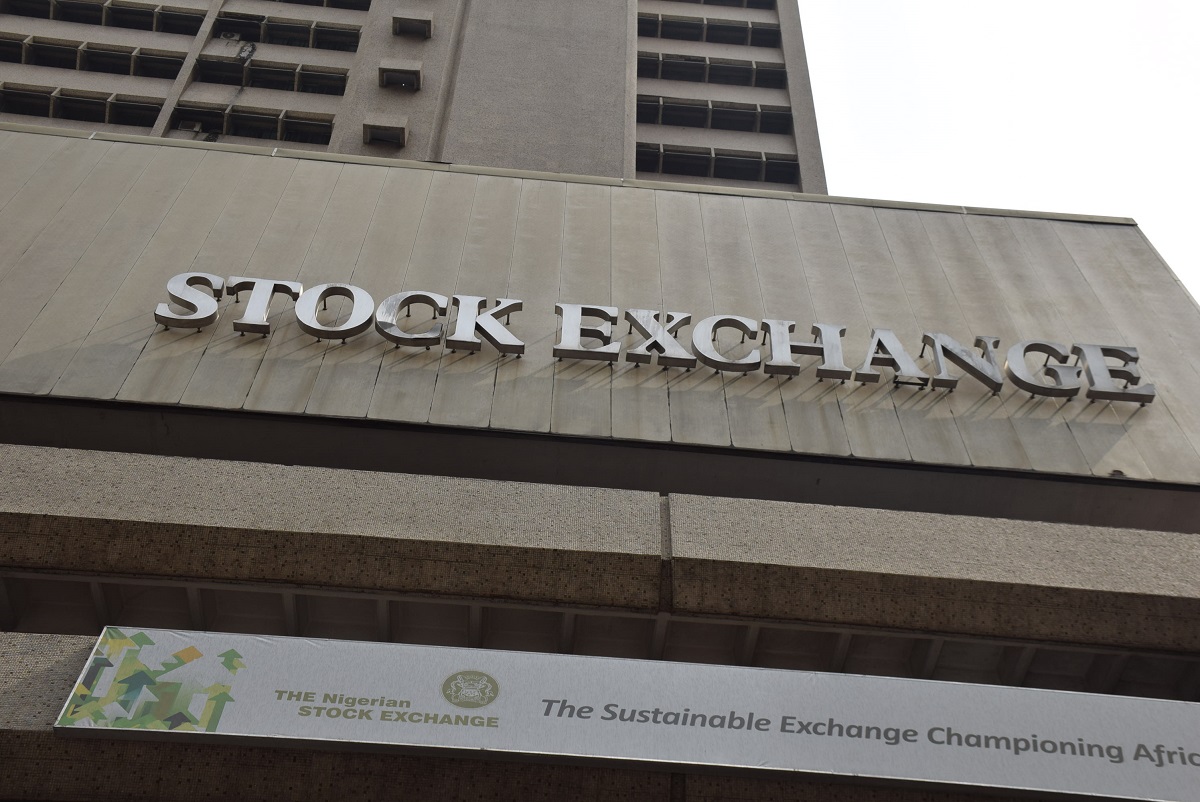BY LAURENCE ANI
You may pretty well say that Nsukka Pepper’s (Ose Nsukka) fame precedes it in a literal sense, even in cities located hundreds of kilometres away from its provenance. In grocery stalls or open markets, these bright yellow chillies sometimes called “Cameroun Pepper”, sit on an enviable perch among a variety of spices with a fragrant aroma announcing their presence to shoppers.
But despite such fame, Ose Nsukka only makes a fleeting presence like most seasonal crops in Nigeria given it’s cultivated by mostly small-holder farmers who have neither the resources for extensive mechanized agriculture nor necessary storage facilities to ensure all-year availability.
A visit to Edem Ani, a largely agrarian community on the outer fringes of Nsukka, in Enugu State, tells the challenging but promising story better. “Our greatest challenge here is scarcity of water; there is no source of water close by,” Mrs Felicia Ugwuoke, a middle-aged farmer wearing a wide-brimmed straw hat to curb the sun’s heat, said three years ago during a visit to her farm. “We buy from the tanker drivers at the rate of N7,000 to N8,000 to fill our overhead tank, and a full tank does not last more than four days because the farm is large and we have to water all the parts. The moment it finishes, we have to buy again,” she added, wiping sweat off her face with the back of her hand.
Besides the difficulty accessing water, she also listed the high cost of procuring fertilizer and the problem of weed control as other major challenges. “Because we use fertilizer and water the farm on a daily basis, weeds grow very fast on the farm,” she explained.
Advertisement
Mrs. Ugwuoke had braved these difficulties for 11 years. Despite these challenges though, growing and selling Ose Nsukka remain a profitable venture for her. “It is profitable because I train all my children from the proceeds on this farm. All my children are graduates except one. A harvest can get me up to N20,000 and I do it several times in a year,” she said, noting that there is usually a drop in price when the crop is in season due to supply glut.
Every April, the farmers in Edem Ani and several other farming clusters in various communities where Ose Nsukka is cultivated experience an influx as buyers from as far as Lagos and Abuja swarm the pepper farms for the first batch of the crop’s harvest. At such harvest time, the distinctly fragrant aroma of Ose Nsukka hangs heavily in the air in communities where the crop is grown.
Asked how the government can make their job less strenuous but more viable, Mrs. Ugwuoke’s demands were few but quite specific. “If it is possible, let the government sink boreholes for us and supply us fertilizer,” she pointed out.
Advertisement
That grim situation is changing rapidly, thanks to Governor Ifeanyi Ugwuanyi whose administration is deploying resources to help the farmers procure improved seedlings and, ultimately, help them grow Ose Nsukka on a commercial scale beyond the subsistence level at which it’s currently grown. The goal is consistent with the Enugu State government’s vision to diversify its economy and make it less-reliant on Nigeria’s oil-driven economy.
“Ose Nsukka is highly sought-after; but they are not grown on an industrial scale,” explained Mike Ogbuekwe, special adviser on agriculture to Governor Ugwuanyi and the state’s focal person on non-oil export. The government offers inputs like improved seeds and fertilizers, keeping its use to the minimum to make the crop largely organic. More importantly, the state government is acting like an off-taker in the value chain.
The agreement is such that regardless of the volume produced, there would be a ready market. “We want to see demand outstrip supply,” he said.
To actualize that vision, the government is collaborating with Green Sahara and Tiger Foods, companies with vast experience in the international spice market. Support has so far been given to nine hundred farmers with a combined farm size of 900 hectares spread across Adani, Edema, Ede Oballa, Lejja, Nguru, Nru, Obollo, Obimo, Nike, and several other agrarian communities. Harvesting and produce mop-up have commenced. Currently, the output is about 25,000 metric tons, but Ogbuekwe is optimistic the linkage market the government has created could increase it to 100,000 metric tons which, according to him, is the state’s actual capacity for Ose Nsukka.
Advertisement
He is also optimistic the off-take agreement will be a huge boost for the state’s revenue drive and help farmers grow output and minimize post-harvest loss. “This industry is worth between N2b to N2.5b,” he said excitedly. Some may find this projection overly ambitious. Such scepticism is not unusual, apparently. “When coal was discovered here in Enugu, nobody saw the opportunity,” Anayo Agu, the governor’s former special adviser on small and medium enterprise and investment promotion, pointed out at a state-sponsored training organised for pepper farmers last year. “Ten to 20 years today people will be amazed at what has happened,” he noted then, adding that Ose Nsukka is the “next goldmine”.
With many households requiring some support to cushion the biting effects of decreased income owing to varying degrees of Covid-19 restrictions, government palliatives have emerged as a natural response. But as governments at both the federal and state level also contend with the economic realities of declining oil price, and the consequential drop in allocation to states, Enugu’s potential in agriculture is coming to light once more.
For instance, all the rice the Enugu State government has used as Covid-19 palliatives were procured locally from communities where the crop is cultivated. These communities are benefiting from the state government’s Pivot Irrigation systems that have enabled rice farmers to cultivate the crop twice or thrice in a year.
Enugu was noted for rice cultivation with communities such as Ugbawka and Adani, in Nkanu East and Uzo Uwani local government areas respectively, attaining fame that drew thousands from distant locations to their weekly markets. It was this prevalence that gave rise to the establishing of Adarice which enriched families and state coffers in its heyday. However, rice cultivation would eventually experience the fate suffered by virtually every vital crop as oil began its ascendant climb in our lives. In a blip, the halcyon days of rice cultivation were over. Vast tracts of farmlands that once bore rice paddies lay abandoned as farming increasingly seemed like a halfhearted pastime. But the new economic reality has spawned a revival in rice cultivation.
Advertisement
It is not only rice and Nsukka pepper that have emerged as poster crops of Enugu’s non-oil export renaissance. They are just two of the seven crops for which the state has identified some comparative advantage. The other crops include cashew, honey, palm oil, okra, and vegetables. To create maximal push for these products and give them distinct marketplace identities, the state sought and obtained registration at the federal ministry of trade and investment for these brands: Coal City Rice, Nsukka Pepper, Enugu Cashew, Enugu Honey, Enugu Palm Oil, Enugu Vegetables, and Enugu Okra. “That is value chain development,” Ogbuekwe explained.
These products have been aggregated for export in thousands of metric tons, with each product’s value chain holding the promise of significant job openings and substantially growing the state’s internal revenue – currently ranked ninth-best in the country – to a considerably healthy income-to-expenditure ratio.
Advertisement
When the governor, in his 2015 inaugural speech, hinted that the country’s economic slump could be an opportunity for Enugu State to “live to its full potential and leave the feeding bottles of the federalism syndrome,” it might have sounded like an aspirational platitude to some. Today, the prospects of the agriculture off-taker deals have put that goal on the cusp of actualization.
Ani, formerly editor of THISDAY – The Saturday newspaper, and Saturday Telegraph, is a senior communications aide to the Enugu state governor.
Advertisement
Add a comment






